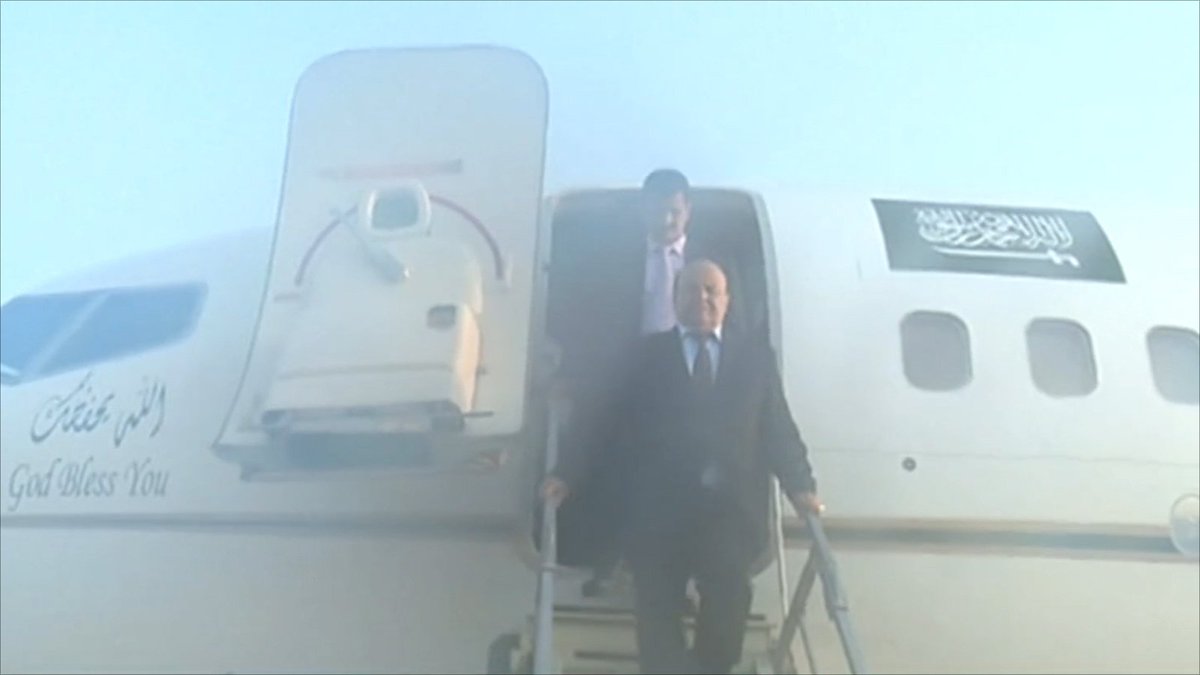US Clears Sale of Air-to-Ground Weapons to Saudi Arabia
WASHINGTON — The US has cleared a sale of more than 10,000 advanced air-to-ground munitions for Saudi Arabia, a week after key allies in the Gulf Cooperation Council (GCC) raised concerns over dwindling supplies of weapons.
If cleared by Congress, the sale, which could be worth up to $1.29 billion, would provide a wave of advanced munitions to a Saudi military that has been conducting airstrikes in Syria and Yemen for 13 months.
The contractor for the weapons will be decided by competition, according to a notice posted on the website of the Defense Security Cooperation Agency.
Included in the potential sale are the following:
"One of the key areas that our partners have brought to my attention, and to the attention of [US Air Forces Central Command head Lt. Gen. Charles Brown] and the rest of us, is the importance of replenishing our stocks of ammunition and precision-guided munitions," James said Nov. 10. "So that's a key message that I'm going to be taking back to Washington and it's one that we're working pretty hard."
"Precision-guided munitions are pretty popular," Brown said. "So not only have we within AFCENT taken steps to make sure we have the right stocks, but we're also working with partners as we understand more about how they operate and their expenditure rates to make sure everybody has what they need and we can get the job done."
In a statement last week to Defense News, Heidi Grant, deputy undersecretary of the Air Force for international affairs, said the US is "working hard to provide munitions to our partners engaged in combat operations."
She also denied that the munitions issues are related to concerns over the speed of the foreign military sales system, but instead is the result of a chokepoint in American industry.
"The fact is that the large demand to provide these weapons rapidly to our partners exceeds US industry's current capacity. US industry is responding, as it always does, to increase production to meet US defense needs and those of our valued partners," Grant wrote. "We are working closely with US industry weapons manufacturers to supply these munitions as quickly as possible via FMS or commercially as appropriate."
US Clears Sale of Air-to-Ground Weapons to Saudi Arabia
WASHINGTON — The US has cleared a sale of more than 10,000 advanced air-to-ground munitions for Saudi Arabia, a week after key allies in the Gulf Cooperation Council (GCC) raised concerns over dwindling supplies of weapons.
If cleared by Congress, the sale, which could be worth up to $1.29 billion, would provide a wave of advanced munitions to a Saudi military that has been conducting airstrikes in Syria and Yemen for 13 months.
The contractor for the weapons will be decided by competition, according to a notice posted on the website of the Defense Security Cooperation Agency.
Included in the potential sale are the following:
- 1,000 GBU-10 Paveway II laser guided bombs (LGBs).
- 2,300 BLU-117/MK-84 2,000 pound general-purpose bombs.
- 4,020 GBU-12 Paveway II LGBs.
- 8,020 BLU-111/MK-82 500 pound general-purpose bombs.
- 1,100 GBU-24 Paveway III LGBs.
- 1,500 BLU-109 2,000 pound penetrator warheads.
- 400 GBU-31(V1) KMU-556 Joint Direct Attack Munitions (JDAM) tail kits.
- 1,000 GBU-31(V3) KMU-557 JDAM tail kits.
- 3,000 GBU-38 KMU-572 JDAM tail kits.
- 2,000 GBU-48 Enhanced Paveway II, dual-mode global positioning system (GPS)/LGB with the MXU-667 Airfoil and the MAU-169L/B computer control group (CCG) dual mode.
- 2,000 BLU-110/MK-83 1,000 pound general-purpose bombs.
- 500 GBU-54 KMU-572 laser JDAM tail kits, dual-mode GPS/LGB with the MXU-667 Airfoil and the MAU-169L/B CCG dual mode.
- 300 GBU-56 KMU 556 laser JDAM tail kits, dual-mode GPS/LGB with the MXU-667 Airfoil and the MAU-169L/B CCG dual mode.
- 10,200 FMU-152 fuzes.
"One of the key areas that our partners have brought to my attention, and to the attention of [US Air Forces Central Command head Lt. Gen. Charles Brown] and the rest of us, is the importance of replenishing our stocks of ammunition and precision-guided munitions," James said Nov. 10. "So that's a key message that I'm going to be taking back to Washington and it's one that we're working pretty hard."
"Precision-guided munitions are pretty popular," Brown said. "So not only have we within AFCENT taken steps to make sure we have the right stocks, but we're also working with partners as we understand more about how they operate and their expenditure rates to make sure everybody has what they need and we can get the job done."
In a statement last week to Defense News, Heidi Grant, deputy undersecretary of the Air Force for international affairs, said the US is "working hard to provide munitions to our partners engaged in combat operations."
She also denied that the munitions issues are related to concerns over the speed of the foreign military sales system, but instead is the result of a chokepoint in American industry.
"The fact is that the large demand to provide these weapons rapidly to our partners exceeds US industry's current capacity. US industry is responding, as it always does, to increase production to meet US defense needs and those of our valued partners," Grant wrote. "We are working closely with US industry weapons manufacturers to supply these munitions as quickly as possible via FMS or commercially as appropriate."
US Clears Sale of Air-to-Ground Weapons to Saudi Arabia




 :
:
